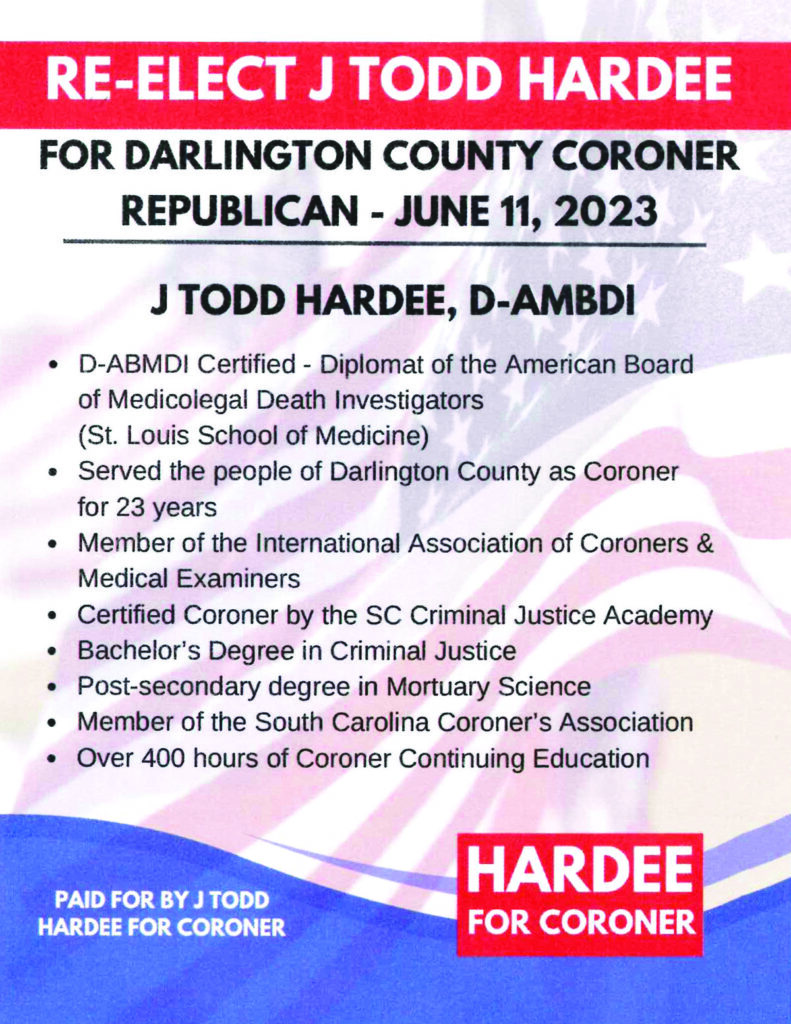A look back: Henry “Dad” Brown


The Darlington Guards embarking for Cuba in 1898, with Henry “Dad” Brown seen on the far left.
Photos courtesy of the Darlington County Historical Commission
By Samantha Lyles, Staff Writer, slyles@newsandpressonline.com
Born near Camden in 1830, Henry “Dad” Brown was a free black man and a veteran of the Mexican, Civil, and Spanish-American Wars, and was a figure of admiration and controversy during his lifetime and long thereafter. How Brown came to freedom varies by account, with some holding that he was born into freedom and others saying that he purchased his freedom and that of his wife, Laura Cannon Brown, who was one of the founders of Macedonia Baptist Church.
Brown made a good living as a reputable brick mason and owned a great deal of land, with holdings that reached from Timmonsville Hwy to Ponderosa Drive, and Hwy 401 to High Hill Road. Brown believed in spreading the wealth, apprenticing young masons and offering financial help to those in need, regardless of their race. Perhaps owing to his sense of community, Brown willingly enrolled as a drummer with the Darlington Guards in 1861 and followed his fellow citizens into danger when the Civil War broke out.
Battlefield drummers played a key role in communication back then, as verbal orders could easily be obscured by the boom of cannons, but a drumbeat could convey orders to deployed soldiers with a mere change of rhythm. Though unarmed, drummers were in the same danger as their fellow soldiers. During the Battle of Bull Run, Brown and his drum accompanied the 8th Regiment onto the battlefield in the thick of the fighting.
One newspaper article quotes Brown as saying his “proudest boast” was the capture of a pair of Yankee drumsticks at the second Battle of Manassas. Brown reputedly cherished these drumsticks and kept them close at hand for the rest of his life.
At the close of the Civil War, Brown’s reputation drew him into public service and he was elected coroner of Darlington County. However, his term of service was ended in resignation after Brown grew frustrated by the pervasive corruption and crooked dealing that characterized much of the Reconstruction period.
Though Darlington had no regular militia while under federal occupation from 1865 to 1876, it wasn’t long before Brown again found himself in uniform. He joined the regrouped Darlington Guards in 1878 and deployed to Cuba. He remained interested in military activities all his life, and regularly turned out to beat the drum whenever veterans turned out for any occasion.
Brown passed away Nov. 2, 1907, after a long illness, and was laid to rest beside his wife Laura. A 15-foot obelisk marks his final resting place on Jeffrey Street in Darlington. Newspaper accounts estimate that at least one-third of those attending his funeral were white, and his grave was completely covered in flowers and gifts from friends and admirers. One white reverend, D.M. Fulton, and one black reverend, J.J. Jefferson, conducted the ceremony, and Darlington Guards bugler Angus Gainey played “Taps” while the company fired three rounds over the grave.
“He has gone to join the great majority of those who marched to the tap of his drum. But we, too, shall soon follow them, “ wrote Gen. W.E. James, on the occasion of Henry Brown’s death.
Over the years, a wide range of tributes have accrued to Brown, including several commemorative ceremonies staged by Confederate reenactors from across the country and, in one well-attended 1990 program, an address by then Secretary of the Army M.P.W. Stone.
While Brown’s roots in the Darlington community and strong relationships with whites and blacks alike made his decision to support the Confederacy somewhat understandable among locals, numerous published examinations of his actions expressed bafflement that any African American would willingly fight for the South. One thing was certain: Henry “Dad” Brown marched to his own beat, and remains one of the most unique persons in Darlington history.



